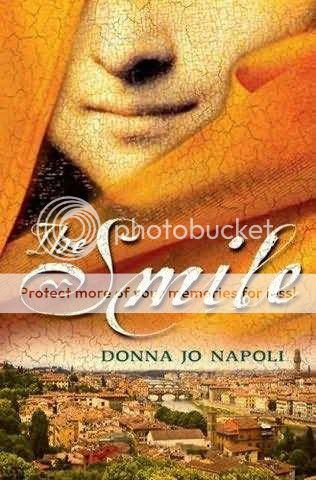
Am I the only one who hated historical fiction as a child? I had plenty of friends who were obsessed with American Girl books, with Little House on the Prairie, and my next-youngest sister still drools over Tracy Chevalier and A Great And Terrible Beauty.
Me? I associated the genre with school. Being a grown up now, I totally understand the whole cross-curricular benefits for teaching historical fiction novels, but DAMN did we really have to read My Brother Sam Is Dead? Wasn\’t there something cooler than The Sign of the Beaver, or my least favorite, Island of the Blue Dolphins?
Anyway. So almost-24-year-long-story short, I don\’t jump for joy over historical fiction. Unless it\’s Octavian Nothing, although that\’s less jumping for joy and more puzzling and muddling for joy.
I digress again. Dammit. What I\’m trying to say is that I am mostly uninitiated to the sub-genre that is Young Adult Historical Fiction, but apparently there is one lady who is. That lady is Donna Jo Napoli. And because my mother procured me a signed copy of this attractively covered book, I deigned to read it.
This book takes place in Rennaissance Italy, in Florence – a city run by the wealthy and extravagent Medici family, patrons of arts and leisure of all sorts – and in the surrounding countryside. Our heroine, Elisabetta, is a noble, but since she lives in the country on her father\’s silk farm, she mingles with the peasants and prides herself in being helpful with the family business, even if a truly Noble Lady wouldn\’t go near a smelly silkworm if somebody paid her. But despite her countrified ways, Elisabetta still hopes that her fifteenth year will be the year she is betrothed – to a wealthy, young man from a good family, not to some old widower. To hedge her bets, Elisabetta decides she needs a coming out party in the city, not in the country, but just as she convinces her parents of her idea, tragedy strikes. And when political turmoil mounts in Florence, it seems all of Elisabetta\’s carefully laid plans will go to crap.
That description reads exactly like you\’d expect it, huh? Girl wants something. Tragedy strikes, complications ensue. But what really drew me into the book was the depiction of what being a young woman at this time and place really meant. Elisabetta is obviously outspoken and liberal for her time, but even so, she is tied to the decisions of her parents, and the politics of a city she doesn\’t even want to associate with. This inner conflict, between her heady desires and her simple resignation to a life isn\’t fully her own, paints the historic landscape better than Napoli\’s lush descriptions and observations of the near-feudal caste system. While I didn\’t find this book as compelling as Octavian or as tension-filled as Laurie Halse Anderson\’s Chains, and the story didn\’t make me carry the book in my hip pocket, anxious to finish, I was still surprised and pleased whenever I did pick it up. Would she ever get betrothed? Would she be reunited with her true love…. and what does any of this have to do with the Mona Lisa?
(And don\’t tell my 6th grade English teacher…. but The Smile may have me jonesing justalittlebit for more, more, more historical fiction)


